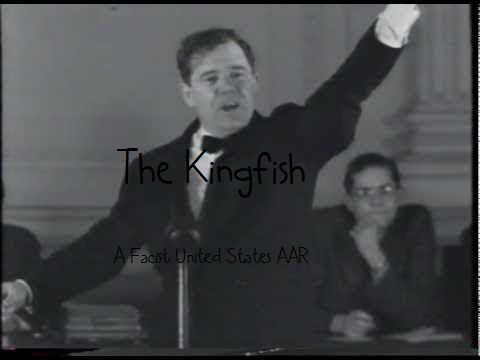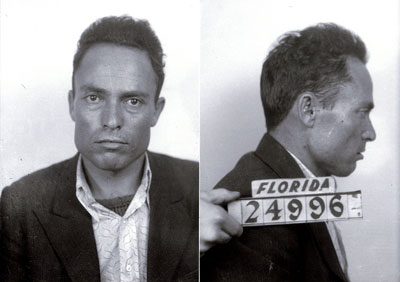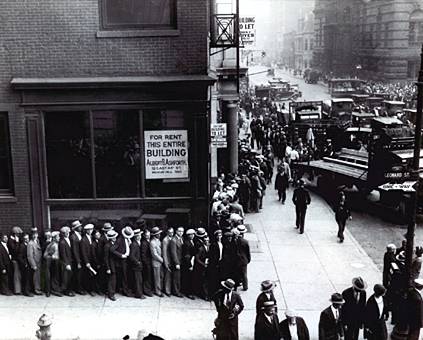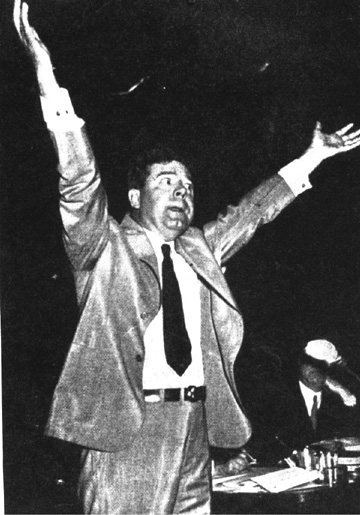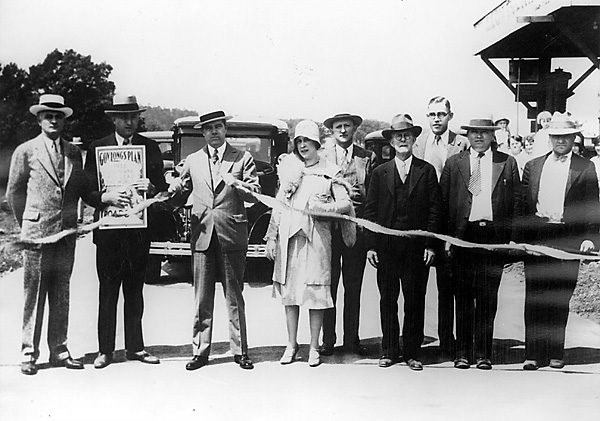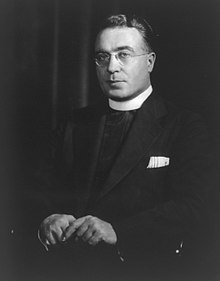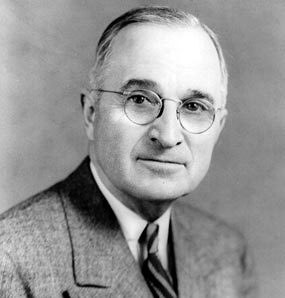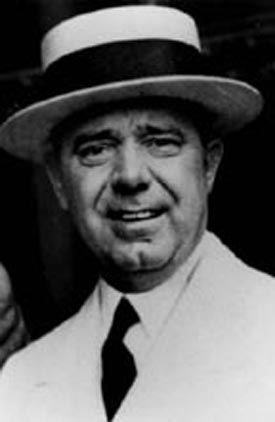Rise of The Kingfish
Huey Long started his political career in 1918, when he was elected to the Louisiana Public Service Commission. He quickly became well known in the state for his viscous attacks on Standard Oil and other big business in the state. He ran for governor in 1924 on the Democratic ticket, but lost, mostly because of his anti-KKK stance, which dominated the states politics. However, when he ran again in 1928, the forty-three percent he won was enough to bring him victory, as the race was divided three ways.
Huey Long celebrating his victory
His political tactics involved extensive use of posters and pamphlets, along with exhausting amounts of campaigning through rural areas. His slogan, "Every man a king," was actually taken William Jennings Bryan, one of the leaders of the original populist movement. His speeches were mostly improvised, and usually focused on attacking the utilities industry and major corporations. He generalized the wealthy as greedy "parasites" who lived off the hard work of the poor. He would also attack his opponents personally, either for being wealthy themselves, or acting immorally. He also tried to be as entertaining as possible and made comical similes and cracked jokes that sometimes made his viewers laugh out loud.
Posters like these could be found all over rural Louisiana prior to the election
At the time of Huey Long's election, the rural poor comprised 60 percent of Louisiana's population. The entire state had roughly 300 miles of paved roads and only three major bridges. The literacy rate was the lowest in the nation (75 percent), as most families could not afford to purchase the textbooks required for their children to attend school. A poll tax kept many poor whites from voting. (Of the 2 million residents, only 300,000 could afford to register to vote.) Together with selective application of literacy and understanding tests, however, blacks had been effectively completely disenfranchised.
As so as he was elected, Long fired hundreds of people from the state bureaucracy from the cabinet down, replacing them with his own political supporters. He worked on a patronage system; each state employee who depended on Long for a job was expected to give certain part of their salary to fund Long's political campaigns. Any that would not were fired and prevented from getting a new job anywhere in the state. He also controlled the state legislature; senators that refused to take bribes would find all of their government employed relatives fired. He also tightly controlled public opinion with huge numbers of propaganda posters and films that showed what he was doing to improve the state. A very large portion of the propaganda was used for calling his political opponents "money grubbing fat cats."
A picture of Long cutting the ribbon for a new public works program, for use in propaganda
Long unarguably improved conditions in Louisiana, enacting a free textbook program for children and an adult literacy program. He also initiated one of the largest public works programs in United States history, building roads, bridges, hospitals, and educational institutions all across Louisiana. Opposition from corporate interests was crushed by Long's political machine. An attempt to impeach him in 1929 was quickly killed, and he won overwhelming support in the 1930 midterms. He was elected to the senate in 1931, although he completed his four year term as governor beforehand. He continued to keep tight control of Louisiana even when he went to Washington.
Once in the senate Long became a massive and vocal critic of President Garner, quickly becoming the leader of his opposition within the Democratic party. He was elevated to the national stage for his fierce rhetoric against corporations and the president. Among the unemployed and the rural poor he became hugely popular, and many social progressives saw him as the savior of the movement. As more Democrats joined his side of the party, a split became necessary.
Long announcing the Democratic split on NBC radio
The new party was officially named the New Democrats, but became almost universally known as the Kingfish Party, after Long's nickname. The Kingfish Party was made up of progressiveness and populists, and it is important to note that they probably didn't consider themselves fascists at the time, but a progressive, or even social democratic party. Long was the primary shaper of party policy, and because of his popularity most other members of the party let him.
However, the Kingfish Party was not the only political organization under Long's command. He was also head of the Share Our Wealth Society, founded in 1934, which pushed for a radical redistribution of wealth. The SOWS took a far more radical perspective on populism and progressivism. It's members were more directly loyal to Long then any political organisation or ideology, essentially becoming his cult of personality. By 1936 it had over 400,000 members across 7,000 branches. He was also head of The Militia, a paramilitary organisation and the fighting arm of the party, and responsible for protection of "party interests". By 1936 they had 50,000 trained and armed members.
A button of the SOWS
Photo taken at the rally of the Kentucky branch of The Militia in 1935
Long spent most of 1935 and 1936 campaigning for the Kingfish Party across the United States, and although he still had tight control over Louisiana, he was only visited twice during those years. He also published his first autobiography,
Every Man a King which became a New York Times bestseller practically overnight. With both the Democrats and the Republicans rendered unpopular, it was clear Long would be a major contender in the 1936 elections.
A Kingfish Party rally in 1936
